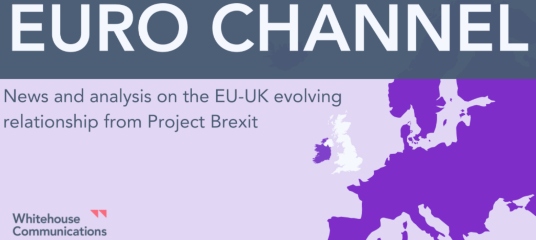Political leaders’ realisation as to how profound the impact of poor mental health and well-being is for individuals, the economy and social cohesion came to the foreground by new realities and particularly the COVID-19 pandemic. As levels of stress, anxiety and depression soared across Europe due to strict ‘stay-at-home’ policies, many turned to the digital world to get access to various types of (personalised) treatment.
Through the touch of a button, mental health apps can provide patients support in monitoring and managing their mental health by practising mindfulness and meditation, journaling, improving their sleep, exercising, eating well, and much more. There are also apps that go beyond fitness regimes and social care situations with options such as online therapy and receiving prescriptions that are more like traditional healthcare management in hospital and community settings.
Mobile apps have been noted for their potential to remove barriers and alleviate pressure on health services. But as they move into the realm of mental health care, many questions are left unanswered. Can consumers be sure that their use is safe and appropriate for them? And what happens to sensitive health information? Policymakers on both sides of the Channel are rethinking regulation and guidance to ensure consumers remain at the steering wheel and use the best and safest tools on the market.
Some mental health apps are considered medical devices
Mental health and wellbeing apps fulfil similar functions as medical technologies. They are designed to save and improve lives and can be applied in wide range of settings. Medical devices – products or equipment intended for medical purposes – are regulated in the UK under the Medical Devices Regulations 2002. Manufacturers wishing to place a medical device on the market in Great Britain need to register with the Medicines and Healthcare products Regulatory Agency (MHRA) and need to comply with relevant product marking and conformity assessment requirements. Some apps that have a medical purpose may already fall under the Regulations and require UKCA or CE markings. This is similar to within the EU, where some types of apps can be subject to the requirements set out under the Medical Device Regulation (EU) 2017/745 (MDR) – particularly if they are not intended to address general emotional wellbeing.
Policymakers in the UK are reviewing more guidance, though…
The National Institute for Health and Care Excellence (NICE) and the MHRA announced a £1.8m project to explore and produce guidance on regulating digital mental health tools. In the next three years, they are exploring whether digital mental health tools should be considered medical devices and what type of risk classification they should fall under. The guidance will be used to establish when these digital mental health tools should be regulated and what evidence must underpin proof of their safety and effectiveness. Apps will also have to be assessed through the Digital Technology Assessment Criteria (DTAC) if they wish to be considered for use by the NHS.
To inform this review, NICE and MHRA are touching base with national and international stakeholders – including the Health and Wellbeing Apps Alliance*- to gather expertise and drive shared learning and consensus in digital mental health regulations.
Responses provided from stakeholders to the 2022 consultation on a forthcoming 10-year mental health plan will likely also inform this work. With many NHS mental health services having transitioned to deliver care online in the past few years, the Government asked for advice on how to “fully harness the potential of technology and data to support better mental health, and how to incentivise the private sector to play its part”. While the Government is still analysing the responses, it is clear that UK policymakers wish to empower patients but also recognise the role of developers in this transition.
Government will shortly be launching a wide consultation on the future of Part IX of the Drug Tariff, which lists medical devices which can be used. It’s expected that the inclusion of health and wellbeing apps is a proposal that will be included in the consultation.
…while it’s a bit more complicated in the EU (as usual)
Health is still a Member State competence, so Brussels’ policymakers’ influence in addressing mental health remains limited. However, some steps are being taken to streamline actions across the bloc, and policymakers are working to ensure consumers are protected when using apps through other policy domains.
In particular, Brussels’ policymakers aim to build a European Health Data Space (EHDS) intended to improve individuals’ access to and control of their electronic personal data (primary use) and engender data re-use for societal good across the EU (secondary use). The European Health Data Space may affect mental health devices because it integrates wellness apps as one of the main product markets for primary use of health data with a voluntary labelling scheme informing consumers about interoperability with electronic health records.
The Commission proposal has been welcomed by the Council and the European Parliament, which are hashing out their positions on the matter. MEPs have already tabled more than 2000 amendments to the proposal and the Council is also still delving into the details, which showcases significant interest and engagement on this dossier. Trilogue talks – negotiations between Parliament, the Council and the Commission – are scheduled for after September, with the aim to have the EHDS up and running by 2025.
What will be a further building block as to tackling mental health issues is the forthcoming comprehensive approach to mental health. Expected next week – on 7th June – the Commission aims to promote a prevention-oriented way to deal with mental health issues and to mainstream mental health into EU policies. The more than 300 responses to a call for evidence earlier this year, which informs this initiative, show widespread support for tackling mental health more seriously from Brussels. Some stakeholders mentioned the potential of digital in providing tailored mental health support to those in need, but it remains to be seen how their role in tackling the mental health epidemic is reflected. It’s a pivotal time for organisations in this space to showcase their innovative solutions and provide expertise.
* This new trade body for developers of mental health and wellbeing apps is spearheaded by Director of MedTech policy at Whitehouse Communications, Chris Whitehouse.
The Whitehouse team has considerable experience in health, human rights and equality, and education, supporting organisations, both large and small in having their voice heard in the United Kingdom, the European Union, its Member States and beyond. For more information, please contact our Chair, Chris Whitehouse, at chris.whitehouse@whitehousecomms.com.


